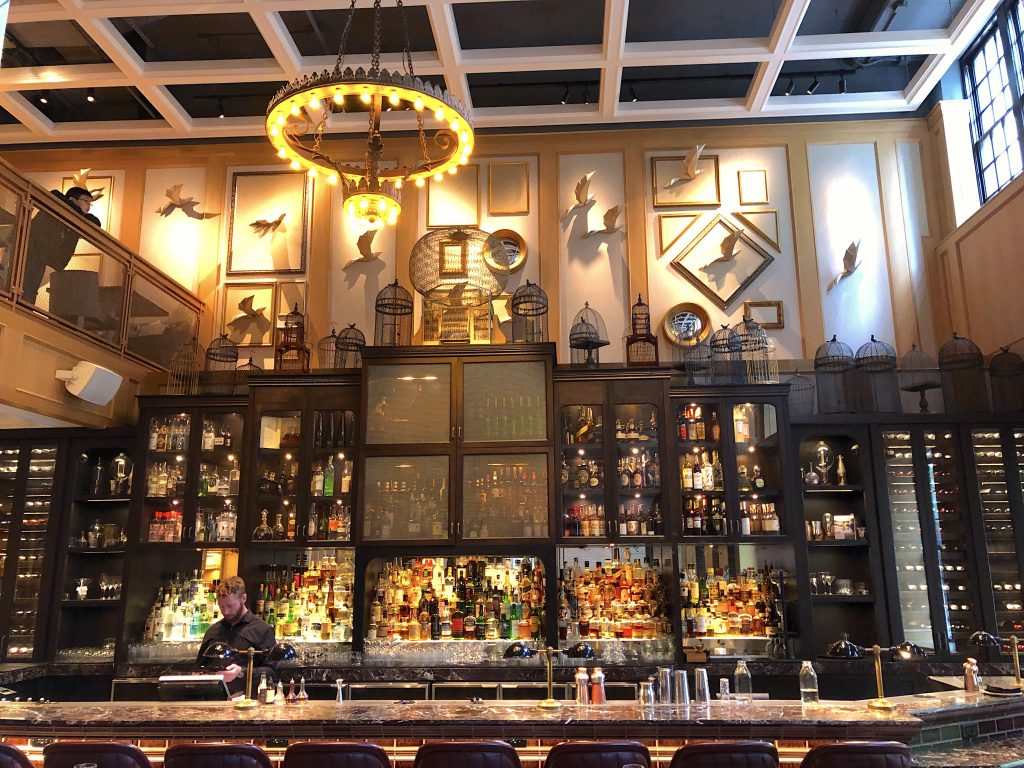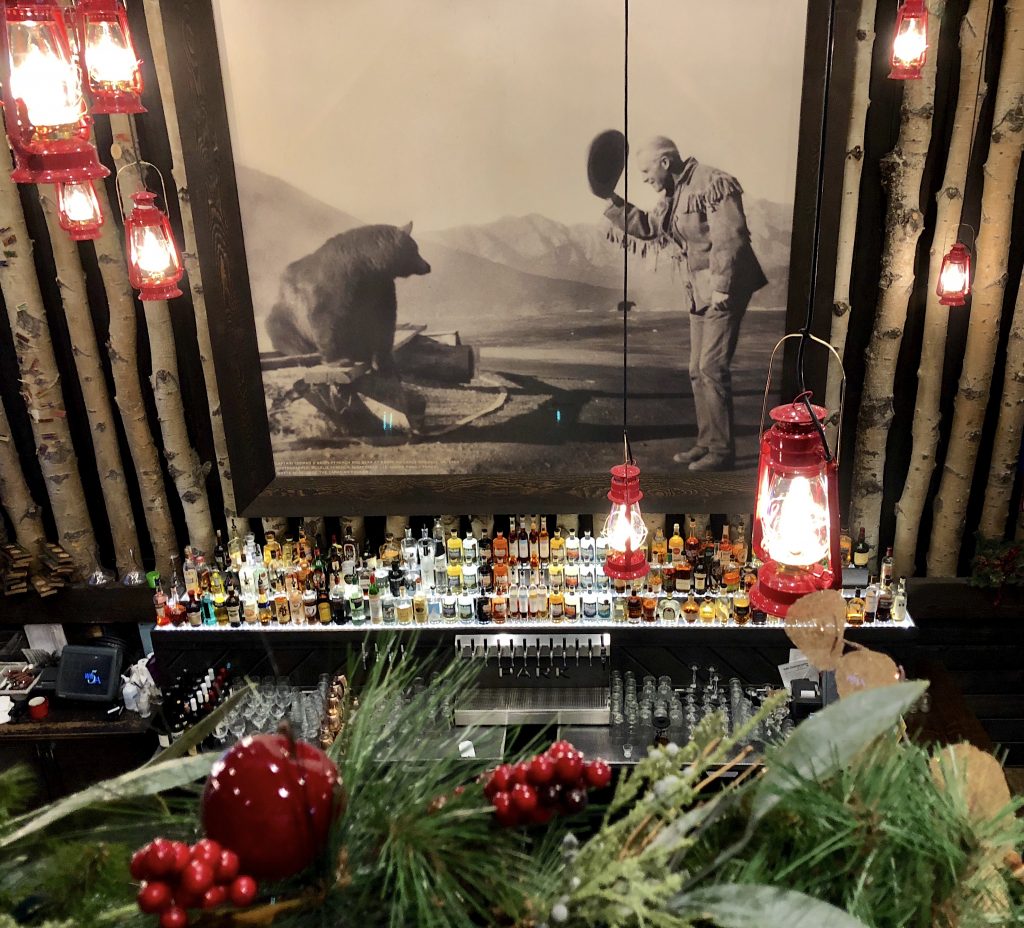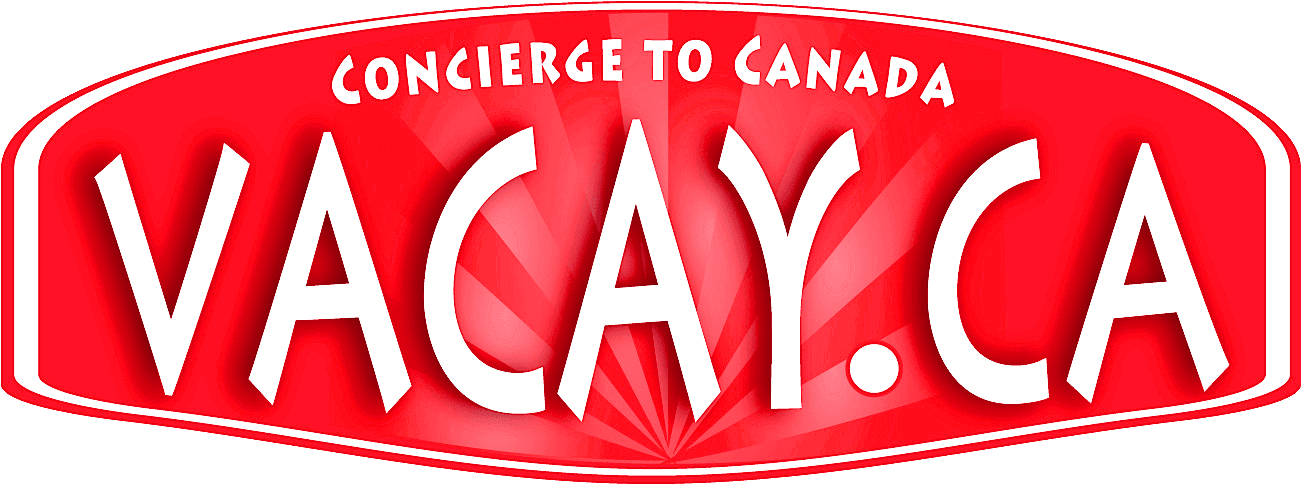
Faced with crisis, Vancouver favourite Nightingale has switched to offering takeout and delivery options for its customers. The restaurant has also delivered meals to healthcare workers. (Adrian Brijbassi file photo for Vacay.ca)
In a report this week Restaurants Canada estimated that 800,000 jobs have been lost in the sector nationwide because of the coronavirus pandemic. Restaurants Canada also announced that many jobs lost might not return as nearly one in 10 establishments have already closed permanently and many more might close within a month.
I recently interviewed David Lefebvre, Restaurants Canada vice-president, federal and Quebec. He provided Vacay.ca with an update on COVID-19, the disease caused by the coronavirus, and the unprecedented challenges facing the industry.
Restaurants Canada is a national, not-for-profit association dedicated to advancing the potential of Canada’s diverse and dynamic foodservices industry.
Vacay.ca: Obviously things are tough right now for Canadian and international restaurants. But reading your press releases is like being stuck in a nightmare you can’t wake up from. Since March 1, 121,500 foodservices jobs have been lost in British Columbia, 95,000 in Alberta, 28,000 in Manitoba, 25,000 in Saskatchewan, 175,000 in Quebec, 300,00 in Ontario, 24,500 in Nova Scotia, 13,700 in New Brunswick, and 10,000 in Newfoundland and Labrador. These are horrifying numbers. Where are the greatest challenges?
Lefebvre: Everyone is feeling the pinch but the biggest challenge right now will be for rural restaurants. It’s more difficult for them because while takeout and delivery is possible for some restaurants it’s much harder to do so if you are in a rural town with customers living 12 or 15 kilometres from your business.

Harvest Eatery in Shaunavon, Saskathewan is the creative collaboration of a husband-and-wife duo. Chef Garrett “Rusty” Thienes and his wife, Kristy, have kept diners satisfied for years with dishes such as the Hickory Smoked Brisket. But rural restaurants are at a disadvantage during the coronavirus outbreak because they are not able to do takeout and delivery as easily as their urban counterparts. (Rod Charles photo for Vacay.ca)
Vacay.ca: Yes, that makes sense. If you own a restaurant in Shaunavon, Saskatchewan or Dauphin, Manitoba delivery will be a challenge for sure.
Lefebvre: Exactly. But regardless of urban or rural, some restaurants simply cannot adjust as easily as others. Most people are not going to order takeout and delivery from a fine-dining restaurant. Some restaurants are going to be able to make adjustments easier than others during this time.
Vacay.ca: I wanted to speak to you about fears many are feeling right now. I know people want to support Canadian restaurants but are scared. I know that I recently went and purchased takeout but I have to admit I was worried about the cook’s cleanliness, if the restaurant had good practices, if the food has been handled properly. Obviously this is important whether there is a pandemic or not but it is even more important now because there is no room for error with COVID-19. What do you say to people who want to support the industry but are worried about getting sick?

Another example of an outstanding Canadian restaurant. Raw oysters are best, but at Savour in the Garden in New Brunswick, chef Alex Haun proves fried versions can be uniquely tasty too. (Adrian Brijbassi file photo for Vacay.ca)
Lefebvre: Well, as you said, restaurants always strive to do their best. We always want to be professional and keep things sanitary. So today we see a situation where we have more rules and more constraints because of COVID-19. We encourage all our members to know the new requirements presented either by the federal government or their provincial governments in terms of public health and safety. For example, if a province stipulates that in order to deliver food by takeout you cannot have contact with a customer, then that’s fine. The restaurant can obey the order by offering credit-card payments, dropping the box of the food in front of the door, things like that. We tell our members and operators to respect all the regulations that is mandated in terms of preparing food, serving food, and delivering food. Right now, those constraints are important.
Vacay.ca: Are you getting support from federal, provincial, and local governments?
Lefebvre: Well, it depends on different places in the country but there have been tons of announcements. At the federal level there have been announcements but many things are going to have to be legislated and passed as a bill in the House of Commons and then in the Senate. There are different things that are going on in the provinces. British Columbia has announced something like a $5 billion fund for businesses, Quebec has $2.5 billion-plus to offer in support. There are a lot of other municipalities that they’re going to help out with initiatives to make it easier to pay property taxes and commercial taxes. There’s also some money that is going to be available as loans or money to businesses to be able to cover some of their workers that are laid off.
So we see so far government response has been quick — that’s the good news. The problem is that we don’t have a lot of the details yet and the situation is still very fluid and it’s obvious that this crisis isn’t going to go away quickly.

With national parks shut to visitors, tourist-driven restaurants such as Park in Banff will see their revenue plummet until the coronavirus crisis slows. (Adrian Brijbassi file photo for Vacay.ca)
Vacay.ca: What do your instincts tell you? How do you think the industry will look like at the end of all this?
Lefebvre: Well, if you have a crystal ball I would gladly take it from you!
Vacay.ca: Fair enough!
Lefebvre: Yeah, I would seriously love to have a crystal ball right now. I’ve been discussing this with my colleagues. Some have been through 9/11, some have been through the SARS crisis, situations like that. The difference this time is we don’t know when this is going to end and we don’t know what’s going to be standing when it does end.
What we do know is that the foodservice industry will be part of the economic development of Canada when things start up again. We’ve got to work with government, other stakeholders and especially with Restaurants Canada members to make sure that we are there to do business once it’s possible to do business again and be able to expand.
And if I may add, people realize that food service is an essential service right now. Even if it’s only takeout and delivery of ripe fruits, it is an essential service and some people completely depend on it. So we think that we’re going to remain relevant in the market and there’s going to be business opportunities down the line. Sadly it’s going to be a carnage and there’s going to be tons of pain but we’re not letting our guard down and we’re going to continue to fight. I know the operators are ready to fight and are in for the long haul.
Vacay.ca: The tourism industry has also suffered with hotels, airlines, museums, parks and attractions being forced to deal with a paralyzed economy. Can you say a few words about the importance of restaurants to the tourism industry in Canada?

La Fenice recently celebrated 35 years of business in Toronto’s Entertainment District and has worked closely with the Toronto International Film Festival (TIFF). There is still uncertainty if TIFF will proceed in 2020. (Photo Courtesy La Fenice)
Lefebvre: What I always say is there are three things that all tourists do. Everybody needs transportation, everybody needs a place to stay, and everybody needs to eat. In terms of food, you don’t have that many tourists who cook at home or in their hotel. Most tourists will almost all go to a restaurant or engage some other type of food industry service.
So restaurants are essential to tourism because all tourists that come to Canada, no matter who they are or where they come from, need to eat. And most of the time they are looking for restaurants. We are critical in the tourism infrastructure because we fill an essential need to people during the time that they are here. And you and I know that when we as Canadians travel abroad we want to try great restaurants in different places. So it is a need for every tourist. So, we say, of course, hotels are important as are airlines and things like that but there’s no tourist who’s going to starve on vacation, right?
Vacay.ca: No argument with that. One of the most important aspects of tourism from our perspective has always been food.
Lefebvre: Absolutely.

For now, choice tables like this one at Miradoro Restaurant in British Columbia’s Okanagan Valley will have to wait. Miradoro, located at Tinhorn Creek Vineyards, is offering takeout only as restaurants in Canada adjust to the realities of COVID-19. (Adrian Brijbassi file photo for Vacay.ca)
Vacay.ca: Most of us know someone who works in the foodservices industry and I can tell you our readers are very concerned about the well being of every chef, hostess, waiter, waitress, dishwasher, owner, and busser. At Vacay.ca it’s difficult to talk about tourism without talking about the restaurants that enhance the tourism experience. So I just wanted to make sure you heard that from us. We have your back, our readers have your back, we support you and are keen to help in any way that we can.
I also want to say that I hope our readers will take the time to order takeout because our restaurants need your help.
Lefebvre: Thank you, we appreciate that.
Vacay.ca: In closing, is there anything that you want the public to know?
Lefebvre: Well, just maybe a message from Restaurants Canada to the industry in general. Understand that everybody is in it together and that we will keep up the fight because we know how important this is. We have your backs and we will continue fighting alongside you. We will get past COVID-19 and work together to make sure that our businesses thrive again.
COVID-19 INFORMATION
Government of Canada: https://www.canada.ca/en/public-health/services/diseases/coronavirus-disease-covid-19.html
Global Travel Advisory: https://travel.gc.ca/travelling/health-safety/travel-health-notices/221








